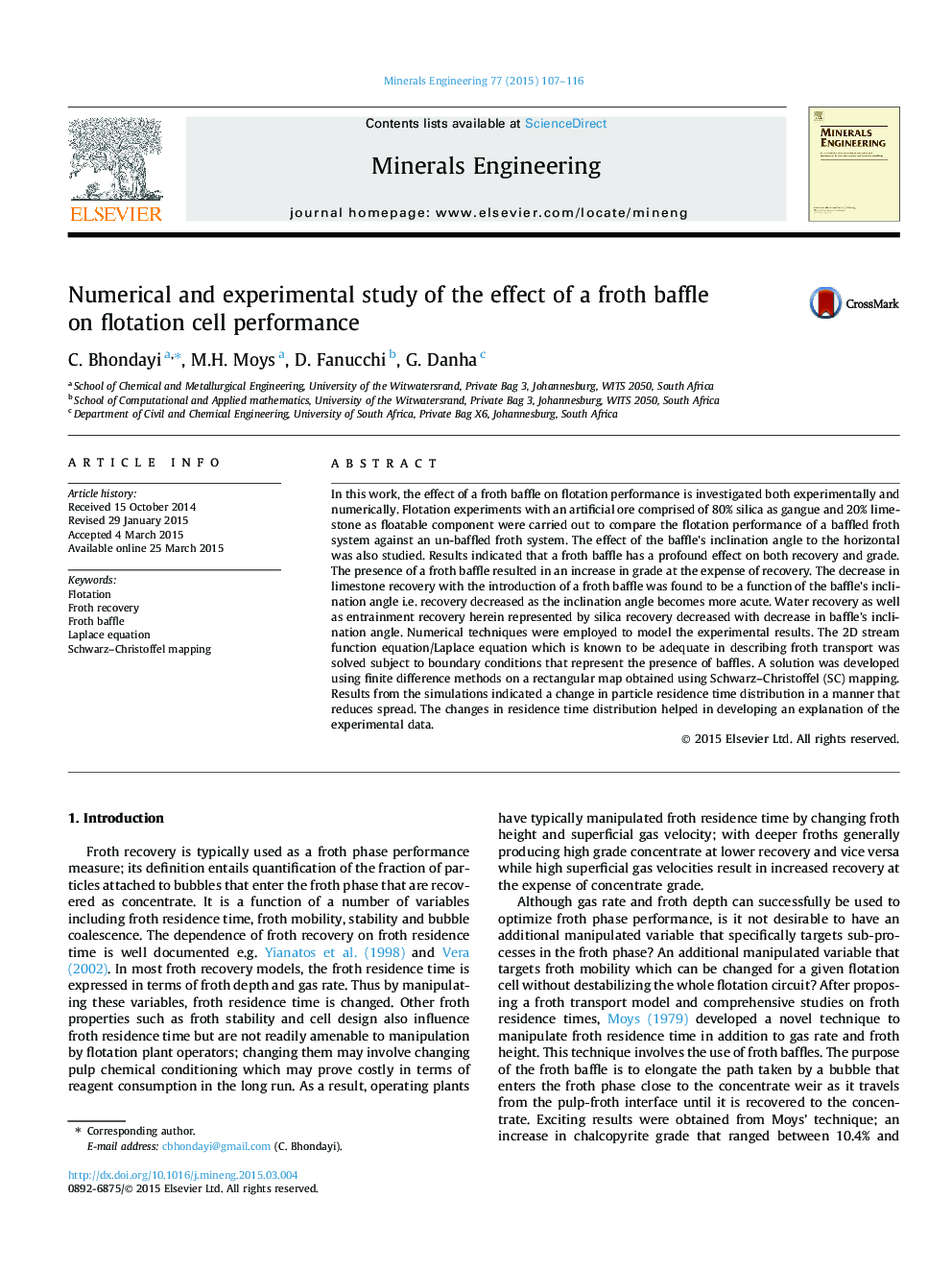| Article ID | Journal | Published Year | Pages | File Type |
|---|---|---|---|---|
| 233000 | Minerals Engineering | 2015 | 10 Pages |
•The effect of a froth baffle on flotation performance was studied.•Flotation performance comparison of a baffled and un-baffled froth was done.•Increase in grade at the expense of recovery in the presence of a baffle was observed.•Flotation performance was found to be a function of the baffles’ inclination angle.•Laplace equation solved using Schwarz–Christoffel mapping was used to explain results.
In this work, the effect of a froth baffle on flotation performance is investigated both experimentally and numerically. Flotation experiments with an artificial ore comprised of 80% silica as gangue and 20% limestone as floatable component were carried out to compare the flotation performance of a baffled froth system against an un-baffled froth system. The effect of the baffle’s inclination angle to the horizontal was also studied. Results indicated that a froth baffle has a profound effect on both recovery and grade. The presence of a froth baffle resulted in an increase in grade at the expense of recovery. The decrease in limestone recovery with the introduction of a froth baffle was found to be a function of the baffle’s inclination angle i.e. recovery decreased as the inclination angle becomes more acute. Water recovery as well as entrainment recovery herein represented by silica recovery decreased with decrease in baffle’s inclination angle. Numerical techniques were employed to model the experimental results. The 2D stream function equation/Laplace equation which is known to be adequate in describing froth transport was solved subject to boundary conditions that represent the presence of baffles. A solution was developed using finite difference methods on a rectangular map obtained using Schwarz–Christoffel (SC) mapping. Results from the simulations indicated a change in particle residence time distribution in a manner that reduces spread. The changes in residence time distribution helped in developing an explanation of the experimental data.
